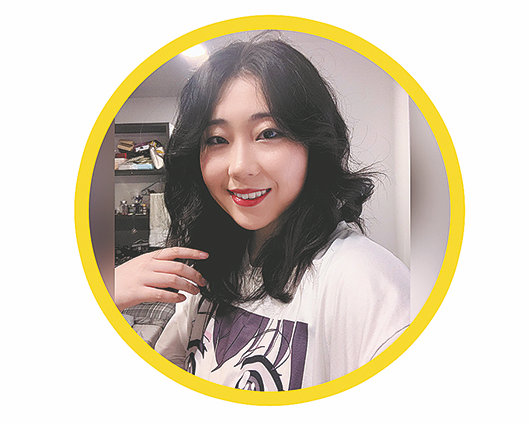Poetry rides new wave
By Gui Qian | China Daily | Updated: 2023-06-14 06:11

Open mainstream Chinese social media and you might get the impression that poetry is making a comeback among the country's young generation.
Lifestyle-sharing platform Xiaohongshu has organized online activities such as "poems battle" and "poetry Renaissance".Poetry-related posts on the platform have reached more than 3 million and content with the hashtag "Xiaohongshu poetry alliance" has received 190 million views.
On the video-sharing website Bilibili, poetry societies have been setting up accounts, among which the Spark Society has gained over 132,000 followers; vloggers, including Youshan Xiansheng and "The Naive and Sentimental Novelist" have been calling for poetry reciting and poem submissions from literature lovers; and poems created by users in comment sections and bullet screens have led to the publication of a new chapbook called I No Longer Work Hard to Become Someone Else: Writing Poetry on Bilibili.
Whether in print or online, young people are reading, writing, engaging and pursuing poetry.

"For a while, poetry was in its low tide in China and poets were stigmatized. Now I'm happy to see poetry making a comeback, which affirms that poetry never dies as it always finds a way to keep its heart beating," said Zhou Yuchen, once a physics major at the University of Cambridge, UK, and now a postgraduate at King's College London.
Apart from writing poems, the 22-year-old has been promoting poetry among youth, as she was one of the founding members and the former vice president of the 00s Poets Society, which is made up of around 60 Chinese poets living around the world who were born post-2000.
The 00s Poets Society arranges poetry lectures and seminars, organizes an international poetry award to recognize outstanding poems in Chinese and other languages, and publishes annual selections of winning works.
Other poetry societies like Zhou's make up the landscape of the world of young Chinese poets. Their mainstays have long been domestic top universities' poetry clubs, including those of Peking University, Fudan University and Wuhan University. But recent years have witnessed the thriving of folk societies such as the Jihe Society and Hangchuan Society. Overseas associations of young Chinese poets, like Accent Society, which is based in New York City, are also making waves in the multilingual and cross-cultural poetry scenes.
According to Zhou, these societies have established communities for poetry enthusiasts to communicate and grow their influence. She also thinks that the prevalence of poetry is connected to the pressure felt from study, work, finance or relationships that young people have to face nowadays.
"Youngsters are looking for shelter from reality, so they look inward. Poetry in nature is the reflection of inner reality and the path through which one can shape it," she explained. "For example, if you want to become happier and more confident, write a poem with positive images and read it aloud, and you may see real changes. This is the magic of poetry." Zhou says this is her philosophy of poetry and thinks it is that of many others, too, consciously or subconsciously.
In the world of the craft of poetry, the young generation is experimenting with language and showcasing a sense of innovation. By integrating computer languages, mathematic terms and financial expressions into poetic lines, poets with different backgrounds are taking poetry to various fields and drawing out new possibilities for the genre. "We young poets want to tame languages of different realms and write poems where poetry does not commonly appear," Zhou said.
























